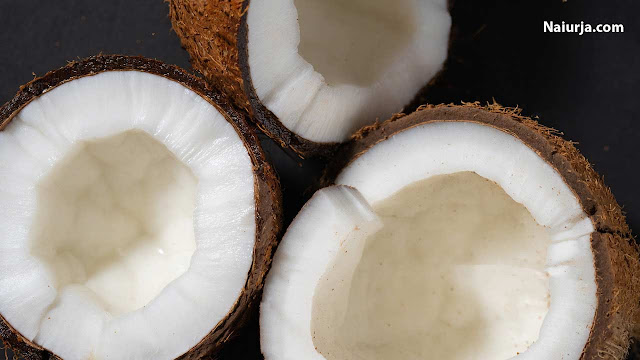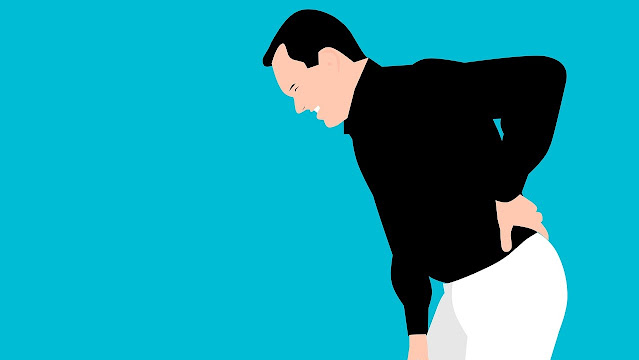Holi Skincare: How to take care of your skin during Holi and after Holi
Colonoscopy: Why is the rate of colon cancer increasing in the younger age group, Side Effect and more.
Alzheimer: Know what is Alzheimer’s and its 10 early symptoms, and keep your family safe.
Green peas: How do you store peas for a long time and know its Benefits.
Weight loss: How to weight loss fast, stay healthy by adopting it.
Who should avoid coconut, what are its health benefits and side effects?
Why men should not drink coconut water, know its side effects and benefits.
Write About Coconut water
Coconut water is the clear liquid found inside a young, green coconut fruit. It is a popular and refreshing drink that has gained popularity in recent years due to its many health benefits.
Coconut water is a rich source of electrolytes, including potassium, sodium, magnesium, and calcium. These minerals play an important role in maintaining proper fluid balance in the body, regulating blood pressure, and supporting nerve and muscle function.
In fact, coconut water has been touted as a natural sports drink, as it can help replenish electrolytes lost through sweat during exercise. It is also a good source of hydration, as it contains a high percentage of water and is naturally low in sugar.
Coconut water is also a rich source of antioxidants, which help protect the body against cellular damage and prevent chronic diseases. It is high in cytokinin’s, which are plant hormones that have been shown to have anti-aging and anti-cancer effects.
In addition to its health benefits, coconut water is a versatile ingredient that can be used in a variety of ways. It is a popular ingredient in smoothies, juices, and cocktails, and can be used as a base for marinades and sauces.
It is worth noting that while coconut water is generally safe and nutritious for most people, it can be high in potassium, which can be problematic for individuals with kidney problems or those taking certain medications. Additionally, some brands of commercially available coconut water may contain added sugars, so it is important to read the labels carefully.
Coconut water is a refreshing and nutritious beverage that can provide numerous health benefits when consumed in moderation as part of a healthy diet.
Coconut Water Health Benefits
Coconut water has a range of potential health benefits. Some of the benefits associated with coconut water include:
- Hydration :- Coconut water is a natural electrolyte-rich drink that can help rehydrate the body, making it a popular beverage for athletes or those recovering from an illness.
- Heart health :- Some studies have suggested that coconut water may help reduce cholesterol levels, which can help reduce the risk of heart disease. It may also help regulate blood pressure, which is another key factor in heart health.
- Digestive health :- Coconut water contains fiber, which can help promote healthy digestion and prevent constipation.
- Kidney health :- Coconut water has natural diuretic properties, which can help flush out the kidneys and prevent the formation of kidney stones.
- Immune system support :- Coconut water is high in antioxidants, which can help boost the immune system and protect the body against cellular damage.
- Weight loss :- Coconut water is low in calories and high in fiber, making it a filling and satisfying beverage that can help support weight loss efforts.
- Skin health :- The antioxidants in coconut water can help protect the skin against damage from free radicals, which can lead to premature aging and other skin problems.
- Hangover remedy :- Coconut water is a natural rehydrator, which can help alleviate some of the symptoms of a hangover, such as dehydration and headaches.
Coconut water is a refreshing and nutritious beverage that can provide a range of potential health benefits. It is low in calories, naturally sweet, and packed with electrolytes, making it a great choice for those looking for a healthy alternative to sugary drinks.
Coconut water side effect
Coconut water is generally safe and well-tolerated for most people. However, some individuals may experience side effects or allergic reactions to coconut water. Here are some potential side effects :-
- Allergic reactions :- People who are allergic to coconuts may experience an allergic reaction to coconut water, which can cause symptoms such as hives, itching, swelling, and difficulty breathing.
- Gastrointestinal discomfort :– Drinking too much coconut water can cause stomach upset, diarrhea, and bloating.
- High potassium levels :– Coconut water is rich in potassium, which is beneficial for most people. However, people with kidney problems who have difficulty regulating their potassium levels should avoid consuming excessive amounts of coconut water as it may lead to hyperkalemia.
- High sodium levels :- Some brands of coconut water contain added sodium, which can be a concern for people on a low-sodium diet or those with high blood pressure.
- Interference with medications :- Coconut water may interact with certain medications, such as blood pressure medications, and alter their effectiveness.
As with any food or drink, it is important to consume coconut water in moderation and talk to your healthcare provider if you have any concerns or underlying health conditions.
What are the five causes of back pain, its symptoms, when it starts, what are its 5 simple exercises and how to manage this problem
What age does back pain start
Back pain can start at any age, although it is more common as people get older. Studies show that approximately 80% of adults will experience back pain at some point in their lives.
Back pain can be caused by a variety of factors, including poor posture, lack of regular exercise, obesity, aging, injury, or medical conditions like arthritis, osteoporosis, and herniated discs. Some of these factors may be more likely to occur as people get older, which may contribute to the increased incidence of back pain in older adults.
It’s important to note that not all back pain is related to age. Younger people can experience back pain as a result of poor posture, overuse or injury, or medical conditions. Additionally, people of any age can take steps to prevent back pain by maintaining a healthy lifestyle, including regular exercise, good posture, and a balanced diet. If you experience persistent or severe back pain, it’s important to consult with a healthcare provider to determine the underlying cause and the best course of treatment.
Who can get back pain
Back pain can affect people of all ages and can be caused by a variety of factors, including:
Inactivity or lack of regular exercise
Obesity or being overweight
Aging and degenerative changes in the spine
Genetics and family history
Injury, trauma, or overuse
Anyone can experience back pain, but certain factors may increase the risk of developing it. For example, people who have jobs that require heavy lifting, prolonged sitting, or repetitive bending and twisting may be more prone to back pain. Additionally, people with certain medical conditions or who smoke may also be more likely to experience back pain.
It’s important to maintain a healthy lifestyle, including regular exercise, good posture, and a balanced diet, to help prevent back pain. If you do experience back pain, be sure to consult with a healthcare provider to determine the underlying cause and the best course of treatment.
Back pain symptoms
Back pain can present in many different ways, depending on the underlying cause and the severity of the pain. Some common symptoms of reverse pain include :-
Dull, aching pain :- Back pain can often feel like a dull, constant ache in the lower back. The pain may be mild or severe and may be aggravated by movement.
Sharp pain :- Some people experience sharp, shooting pain in the back. This type of pain may be more severe and may be triggered by sudden movements or changes in position.
Stiffness :- Back pain can also cause stiffness or reduced range of motion in the back. You may have difficulty bending or twisting, and may feel like your back is “locked up”.
Tingling or numbness :- In some cases, back pain may be accompanied by tingling or numbness in the back, legs, or feet. This may be a sign of nerve involvement.
Weakness :- Back pain can also cause weakness in the legs, making it difficult to stand, walk, or climb stairs.
Pain that worsens with certain activities :- Back pain may be aggravated by certain activities, such as prolonged sitting, bending, or lifting heavy objects.
Limited mobility :- Severe back pain can limit your ability to perform routine activities, such as getting dressed or taking a shower.
It’s important to consult with a healthcare provider if you experience persistent or severe back pain, especially if you have any other symptoms like fever, unexplained weight loss, or difficulty urinating, as these may be signs of a more serious underlying condition.
Read also :- Know 7 side effects of papaya so that you are safe
5 Sheet Mask Mistakes To Avoid If You Want A Glowing Face
5 Sheet Mask Mistake
Sheet masks are a great way to give your skin an extra boost of hydration and nourishment. However, there are a few common mistakes people make when using sheet masks that can actually do more harm than good. Here are five sheet mask mistakes to avoid :-
Leaving the sheet mask on for too long :- It’s tempting to leave the sheet mask on for as long as possible to let all the goodness sink in, but it’s important to follow the instructions on the packaging. Leaving the sheet mask on for too long can actually dry out your skin and cause irritation.
Not prepping your skin :- Before applying a sheet mask, it’s important to cleanse and tone your skin to remove any dirt or oil. This will help the sheet mask penetrate deeper into your skin and provide better results.
Not adjusting the mask to fit your face :- Sheet masks come in a one-size-fits-all shape, but everyone’s face is different. Take the time to adjust the mask to fit your face properly, making sure there are no air pockets or gaps.
Not massaging in the excess serum :- After removing the sheet mask, there will be excess serum left on your face. Don’t waste it! Gently massage the serum into your skin to maximize the benefits.
Using sheet masks too frequently :- Sheet masks are a great addition to your skincare routine, but it’s important not to overdo it. Using sheet masks too frequently can actually cause your skin to become reliant on them, and can also lead to over-hydration and breakouts. Stick to using sheet masks 1-2 times a week for the best results.
What should you not do with a sheet mask?
When using a sheet mask, there are a few things that you should avoid doing to ensure that you get the most out of your mask and avoid any potential issues. Here are some things that you should not do with a sheet mask:
Leave it on for too long :- Sheet masks are designed to be worn for a specific amount of time, typically 10-20 minutes. Leaving a sheet mask on for too long can actually have the opposite effect and dry out your skin.
Reuse it :- Sheet masks are designed for one-time use only. Reusing a sheet mask can introduce bacteria to your skin, leading to breakouts and other skin irritations.
Apply it to dirty skin :- Always start with clean, freshly washed skin before applying a sheet mask. If your skin is dirty or oily, the sheet mask may not adhere properly, and you may not get the full benefits of the mask.
Rub or massage your skin after removing the mask :- After removing a sheet mask, be gentle with your skin. Avoid rubbing or massaging your skin, as this can lead to irritation and redness.
Skip moisturizer :- While sheet masks can provide a lot of hydration to your skin, they shouldn’t replace your daily moisturizer. After removing a sheet mask, be sure to follow up with your regular moisturizer to lock in the benefits of the mask.
Read also :- 8 Common Mistakes People Make While Applying Moisturizer
Easy tips to improve metabolism







.jpg)
.jpg)